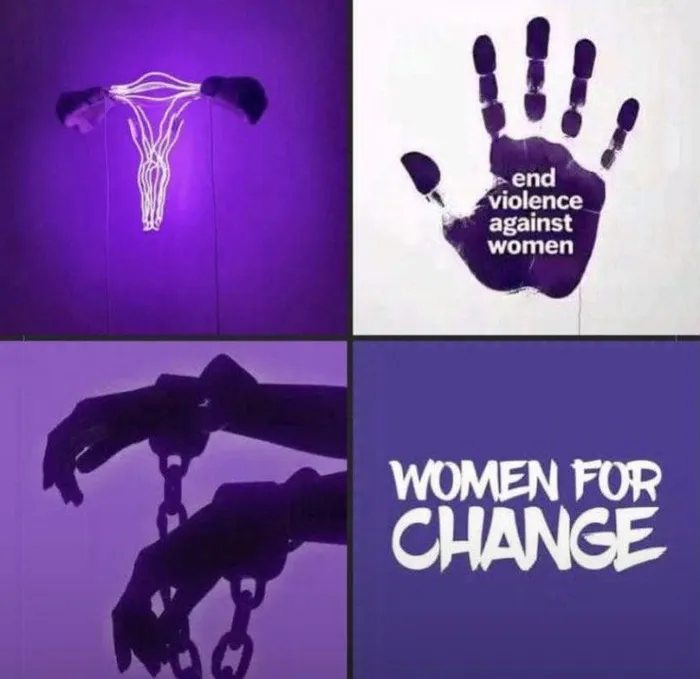
Sabrina Walter: ‘We will silence the nation’ — Women For Change plans shutdown to protest GBV before G20 Summit.
Image: X
Women For Change founder Sabrina Walter says South Africa is facing a turning point in the fight against gender-based violence (GBV), as thousands of women and allies across the country joined the online campaign turning their profile pictures purple in solidarity with survivors.
Walter described the weekend as deeply emotional, marking a decade-long fight for visibility and justice in what she called 'a crisis shadowed by silence and death'.
"I'm overwhelmed; it has been such an emotional weekend. I have spent almost a decade fighting this crisis, shouting into what often felt like an endless void, a fight shadowed by silence and death," she said.
On Friday, November 21, South African women and members of the LGBTQI+ community are being urged to stage a nationwide shutdown in protest against GBV and femicide. Women For Change says the demonstration aims to highlight the social and economic impact of women's absence, coming just a day before the G20 Leaders' Summit.
According to Walter, the surge of online support has been unprecedented, with women sharing their stories and standing together in a powerful act of collective resistance.
"Seeing thousands of women and allies turn their profile pictures purple, speak out and share their stories has brought me to tears more than once," she said. "Messages are pouring in from every corner of the world, women across the continent standing together against GBV and femicide."
Political analyst Professor Theo Neethling noted that demonstrations around major international summits are part of a long global tradition of protest politics.
"Protests at major international gatherings are nothing new. One only needs to recall the so-called 'Battle of Seattle' in 1999, when anti-globalisation movements clashed with security forces during the World Trade Organisation meeting," said Neethling. "The demonstrations completely overshadowed the official proceedings and became the defining image of that summit."
Neethling said the timing of the Women For Change shutdown, scheduled for the eve of the G20 summit, was clearly intended to attract attention and amplify the movement's message.
"In that light, the planned 'shutdown' by Women For Change on the eve of the G20 summit is hardly unprecedented. It is, quite clearly, designed to draw attention," he added.
He cautioned, however, that all demonstrations must remain lawful and peaceful to preserve their legitimacy and South Africa's global reputation.
"Such actions are legitimate expressions of democratic rights, provided they take place within the framework of the Constitution. However, once activism descends into vandalism or the destruction of public infrastructure, as reported in the news this morning, it crosses the line into criminality and damages the country's image at a time when the world’s eyes are upon it."
Neethling added that while the shutdown is unlikely to disrupt formal G20 proceedings, it will still influence how the world views South Africa. "While the protests are unlikely to disrupt the formal proceedings of world leaders, they will undoubtedly attract international media coverage and, in doing so, shape perceptions of South Africa abroad," he said.
Walter said the campaign's visibility has given survivors renewed courage to share their experiences publicly.
"For survivors, that visibility is so powerful and important. I have seen thousands of women share their personal stories in the past two days because they felt safe enough in doing so. Together, we are creating that safe space for survivors to be believed," she said.
Describing the digital movement as a new form of protest, Walter emphasised that not all activism happens on the streets.
"Not everyone can take a day off work or march in the streets, but this, this is their act of protest. Digital activism is real activism, and it can be so powerful."
She called the campaign South Africa’s #MeToo moment, saying women's collective strength could no longer be dismissed.
"This is South Africa's #MeToo moment, and the world is watching. Women hold incredible power. We are more than half of this nation, and they can’t ignore us any longer."
IOL News
Related Topics: